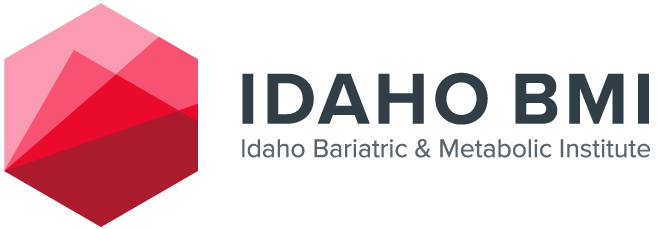We all age. It’s inevitable, and it’s normal.
But something else is developing that’s far from normal, and it started five years ago – before COVID.
For the first time since World War II, life expectancy in the U.S. is declining. And that’s despite advancements in medicine & technology.
For such a troubling statistic, few people are discussing it. Is COVID a factor? Sure, but the story is much bigger, and we could just be at a tipping point of a crisis long in the making.
Why Life Expectancy is Declining
43% of Americans are obese. 67% are overweight.
While there are improvements in medicine and treatments, one aspect of general health is largely ignored – prevention, and this data on American weight highlights it. Common causes of these earlier deaths are directly correlated with obesity, which really started ramping up in the late 1970s and early 1980s.
And it’s not slowing down. Each annual report shows a one percentage increase, sometimes even two percent, in obesity. And obesity goes hand-in-hand with a specific kind of damage to our bodies – oxidative stress.
Oxidative Stress and Aging
Picture a baby just born, drawing its first breath of oxygen. Critical, right? We all need oxygen.
The irony is that oxygen – particularly oxidative stress – contributes to aging and ultimately our death. Oxidative stress is the progressive inability to use oxygen as we’re designed to. It comes naturally with age, however it grows much more damaging when metabolic disease is present. And that leads us to the two pillars of aging.
The Two Pillars of Aging
Imagine a savings account. You make regular deposits, building up for a comfortable retirement. Sounds great right?
Now imagine being unable to access it. You could have $1 billion tucked away, but what good is it if you can’t use it?
It’s a metaphor for the first pillar of aging and what many of us are doing with our bodies; we have a constant ability to store fuel, but we are losing the ability to access and burn it.
The second pillar is the loss of the ability to recover. But what exactly does “recover” mean?
Think about lifting weights. What’s actually happening in the short term, is damage, tiny little tears to the muscles used. Now, the benefit of exercise isn’t the act itself – it’s the repair, the body healing itself. And the same applies to anything – colds, a broken hip from a fall, even daily stress. Bottom line, resilience is huge in fighting aging.
How to Slow Aging
It’s a common question Dr. David Brown discusses with his patients at both Idaho BMI and Everest Surgical Institute.
There are a lot of answers, and all of them are touched on in some form in previous episodes of Brain Over Belly. But two stand above the rest.
Exercise directly affects both pillars of aging. When you break a good sweat – cardio, weights, you name it – you’re accessing and burning stored fuel. Also, you slightly break down your body, so that it can – you guessed it – repair, rebuild, and recover.
One small note; Dr. Brown exercises while fasting. Many others do too. It’s not only possible, but it enhances that access to stored fuel.
Fasting is the other major tool that slows aging, and in similar ways to exercise. Deprive your body of constant fuel, and it has no choice but to go to the reserves! Fasting also reduces many of the markers of oxidative stress, helping the body to heal itself.
In addition to exercise and fasting, good sleep, hydration and mindfulness practices also are great tools for fighting aging.
Muscle Loss & Aging
This is a hot topic that so far, just lacks definitive answers. But Dr. Brown does have a suspicion for why we lose muscle over time.
Insulin resistance goes up with age – and people who are insulin resistant break down muscle at a higher rate. In America today, when we see an increase in people’s insulin resistance as they age, it only makes sense they’d experience muscle loss as well.
So circling back to exercise; it not only maintains muscle due to regular use, but it also reduces insulin resistance. It’s a total win-win.
Food and Aging
Several studies have shown that the quality of people’s diets decline with age – the jury’s still out on why, but it’s well established that people eat less protein and more carbs as they age. Cue oxidative stress!
Now, there’s something that can really reverse oxidative stress – a molecule called glutathione. People are very familiar with protein, which are built from twenty amino acids. Well, nine are considered essential – our bodies simply cannot synthesize or produce them.
It just so happens that in nature, the best source by far for these essential amino acids is animal protein. In fact, it’s almost impossible to get enough methionine – a building block of glutathione – from non-animal sources.
It’s not that Dr. Brown is “pro-meat” or “anti-vegetarian”. He’s pro-health, and the data is simply clear. If you want to slow aging, prioritize animal-sourced protein in your diet.
Five Ways to Live Longer
In closing let’s just recap five ways to fight aging and enjoy longer, healthier lives while feeling great.
- Exercise to build & maintain muscle mass
- Fast in some way
- Work on sleep, ideally getting eight hours and at consistent times
- Drink plenty of water
- Eat meat
Brain Over Belly is available wherever you get your podcasts. Subscribe now for this second episode of a special two-part series on heart disease, and others discussing weight loss, general health and longevity. Brain Over Belly, get it on Listen Boise today. What have you got to lose?

